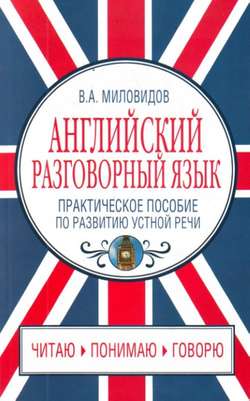Читать книгу Английский разговорный язык. Практическое пособие по развитию устной речи - В. А. Миловидов - Страница 22
На сайте Литреса книга снята с продажи.
2. Экономические учения
(Economics)
Rational Expectations Theory
ОглавлениеThe theory of rational expectations is based on the assumption that in many economic situations the outcome depends partly upon what people expect to happen. The value of a currency, for example, depends to a great extent on what people expect that currency's rate of depreciation to be. That is because people hurry to give up a currency that they expect to lose value, thereby contributing to its depreciation. In the same way, the price of shares depends partly on what the shares' buyers and sellers believe it to be in the future.
The relation between expectations and outcomes is two-fold. In forming their expectations, people try to forecast what will actually occur, and the results of their forecasting, provided that they were correct, help them form expectations for the future outcomes. There is continual feedback from past outcomes to current expectations, as in recurrent situations the way the future unfolds from the past tends to be stable, and people adjust their forecasts to conform to this stable pattern.
The theory of rational expectations states that outcomes do not differ regularly from what people expected them to be. Of course, sometimes people make forecasting errors, but those errors will not persistently occur. The rational expectation theory thus provides a trustworthy basis for some economic theories which have evident political implications. Those are the «random walk» or «efficient markets» theory of securities prices, the theory of the dynamics of hyperinflations, the «permanent income» and «life-cycle» theories of consumption, the theory of «tax smoothing,» and the design of economic stabilization policies.
Traditionally economists believed that there was a positive relationship between people's consumption and their current income. The rational expectation theory debates this issue stating that people consume out of their «permanent income,» which can be defined as the level of consumption that can be sustained while leaving wealth intact. This has changed the way economists think about short-term stabilization policies, such as temporary tax cuts, designed to stimulate the economy. Formerly economists believed that tax cuts would increase disposable income, thus causing people to consume more. Now, in accord with the permanent income model, it is believed that temporary tax cuts have little effect on consumption because people are relating their consumption decision to their wealth, not their current disposable income.
Слова и выражения:
conform – согласовывать(ся), приспосабливать(ся)
continual – продолжающийся, постоянный
contribute – прибавлять, доставлять, привносить
current – текущий, современный
disposable – имеющийся в наличии
dynamics – динамика
error – ошибка
evident – очевидный
expect – ожидать
expectation – ожидание
feedback – обратная связь
formerly – раньше, изначально
happen – случаться
hurry – спешить
hyperinflation – гиперинфляция
intact – нетронутый
occur – случаться, происходить
outcome – результат, исход
partly – частично
persistently – настойчиво, постоянно
positive – позитивный, положительный
provided – при условии (что)
rational – рациональный
recurrent – вновь повторяющийся
smoothing – смягчающий
stabilization – стабилизация
sustain – поддерживать, длить(ся)
temporary – временный
thereby – посредством этого
traditionally – традиционно
trustworthy – надежный
unfold – раскрыть(ся)
wealth – богатство, состояние, благосостояние
to a great extent – в значительной степени
rate of depreciation – степень обесценивания, норма амортизации
two-fold – двусторонняя
random walk – подчиняющееся случайности движение (наименование теории ценообразования на фондовом рынке)
permanent income – постоянный доход
current income – текущий доход
tax cuts – сокращение налогов
in accord with – в соответствии с
Exercise 10
Answer the questions:
1. What assumption is the theory of rational expectations based on?
2. What does the value of a currency depend on, according to this theory?
3. What do the prices of shares depend on, in the context of this theory?
4. What is the relation between expectations and outcomes?
5. What does the rational expectation theory provide a trustworthy basis for?
6. What is people's consumption positively related to, in the traditional economics?
7. What is people's consumption related to, in the rational expectations theory context?
8. What did the traditional economics think about temporary tax cuts in relation to their effect on consumption?
9. What sort of income are people relating their consumption decisions to?
10. What is permanent income?
